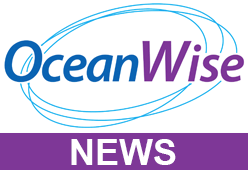Independent marine data management and GIS specialists, OceanWise, and the United Kingdom Hydrographic Office (UKHO) hosted an Open Forum on Marine Spatial Data Infrastructure (MSDI) followed by the 6th International Hydrographic Organisation’s MSDI Working Group (IHO MSDIWG) meeting at the Holiday Inn Express Hotel, Terminal 5 near Heathrow Airport, London from 3rd-6th March. The theme of the Open Forum was ‘Building a Maritime Spatial Data Infrastructure’ – are the principles at odds with strategies for delivery?
This annual event, held in the UK for the first time, brought together practitioners and decision makers from all over the world, including as far afield as Canada and Japan, all with a common interest in developing and delivering data management best practice across the hydrographic and oceanographic communities. Topics covered by the Open Forum and subsequent Working Group meeting included the four pillars of SDI, namely: policy and governance; data and metadata; information systems and standards.
The Open Forum was attended by invited guests from government, commerce and the third sector. Presentations included: the requirement for MSDI as an enabler for e-navigation; open data and the economic stimulus for making data more accessible, the benefits of linked data; the role of the EUs INSPIRE Directive in supporting marine geospatial activities; using vertical reference frames to geodetically enable harmonised land-sea topography and the imperative to use consistent and robust standards. How ports and harbours and the UK military are benefiting from enterprise level MSDI was described and examples how the marine and maritime sectors are contributing to National SDIs in Norway, Canada and Germany were presented. All of these case studies showed the clear value and benefits to be accrued from making data more accessible through harmonisation and organisational interoperability.
Debate during the day supported the fact that the ability of many Hydrographic Offices, as data and information providers, to deliver what is increasingly being required by government driven strategies and policies, continues to be hampered by a lack of knowledge as to how they might respond. This in part is due to the organisational and governance structure in which many of them operate but also a lack of communication with other mainstream geospatial providers and stakeholders in national SDI programmes.
The Open Forum was followed by the 6th Working Group meeting. Task groups addressed specific technical and governance challenges facing the hydrographic community to enable it to better meet the growing wider use of hydrographic data. Doing so will contribute to greater socio-economic and economic benefits across the world, often referred to as the ‘Blue Economy’, and prove that ‘hydrography is not just for charting’.
Back to News



